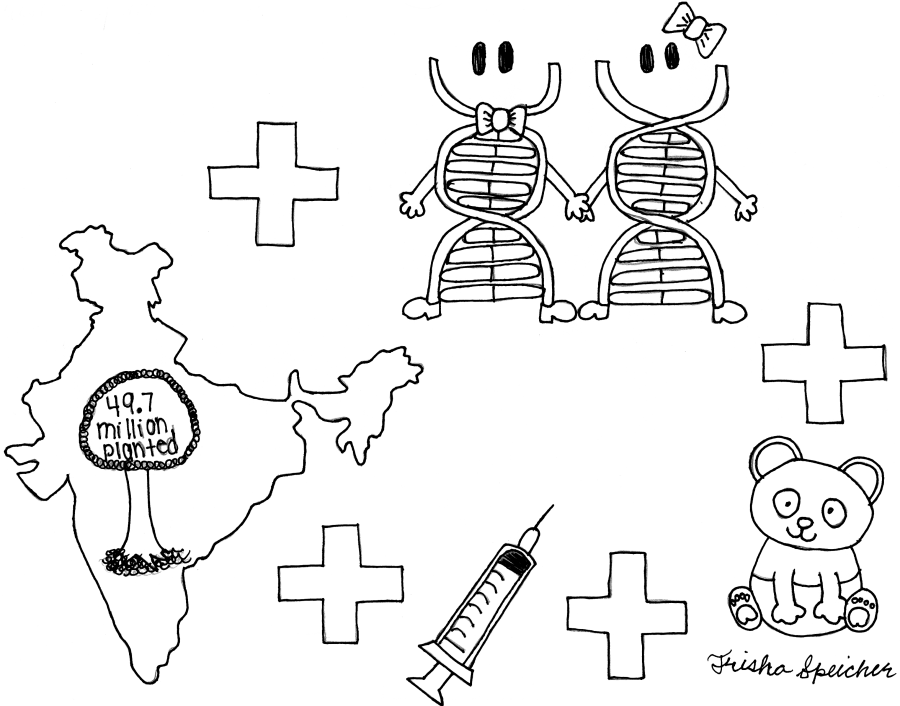2016: not just a dumpster fire
Recognizing the positive in 2016 instead of the frequently lamented negatives
As 2016 came to an end, stories in the news began to be nothing but upsetting, partially because of the death of multiple beloved stars. Unfortunately, we saw quite a bit of these in the past few months. As bad news collectively started to appear more often, Twitter users took over and made sure these negatives were all we heard about.
“Goodbye 2016! Good riddance! #2016Sucked,” one tweet the morning of Jan. 1, 2017 said.
“This year is coming to an end, thankfully. Here’s to a positive 2017,” another tweet that was sent out on Dec. 31, 2016 said.
After thousands of negative tweets about 2016, stumbling upon a list of good things that occurred was quite a surprise, a surprise that more people, currently stewing over the particularly unfortunate year, are in need of.
For example, on July 11, 2016, 800,000 volunteers from Uttar Pradesh, India planted 49.3 million trees in just 24 hours, completely blowing away the previous record set by Pakistan in 2013 when they planted one million trees. This new record will help to fight climate change by reducing carbon emissions as well as decreasing the amount of air pollution, which, in India, is more of an issue than in most other countries.
2014 happened to be a big year for the ever-so-popular “ALS Ice Bucket Challenge,” when the internet blew up with millions of videos of ice-cold water being dumped on someone’s head. This past year in 2016, this challenge literally “paid” off. Using the money raised via the viral stunt, studies were able to discover the gene “NEK1,” which is one of the main contributors to ALS. Discovering this gene opens opportunities for scientists to begin to develop a gene therapy to treat it.
A recent experimental vaccine used to prevent Ebola was found to be 100 percent effective, giving hope of better protection against the deadly disease that killed more than 11,000 West African citizens in 2014. In 2016, this vaccine was given to people in Guinea who had recently come into contact with Ebola victims. The results were extremely promising; a total of 5,837 people were given the vaccine, and after 10 days, there were no cases of Ebola in any of the recipients. Although the vaccine does not cover every strain of Ebola, any strain being contained is a step in the right direction.
Nearing the last few months of 2016, the giant panda was confirmed no longer endangered by conservationists and is only characterized as “vulnerable” at the moment. Through Chinese government efforts to protect and reestablish habitats, panda populations have grown by nearly 17 percent. There are now around 2,000 pandas outside of captivity living in the wild.
As a whole, 2016 didn’t get the best reputation, with it even being referred to as “the worst year yet” by thousands of Twitter users all over the country; however, most of the beautiful and historic events over this past year were looked over or forgotten about. Negativity has the tendency to spread faster than positivity, but together, people everywhere can change that.



